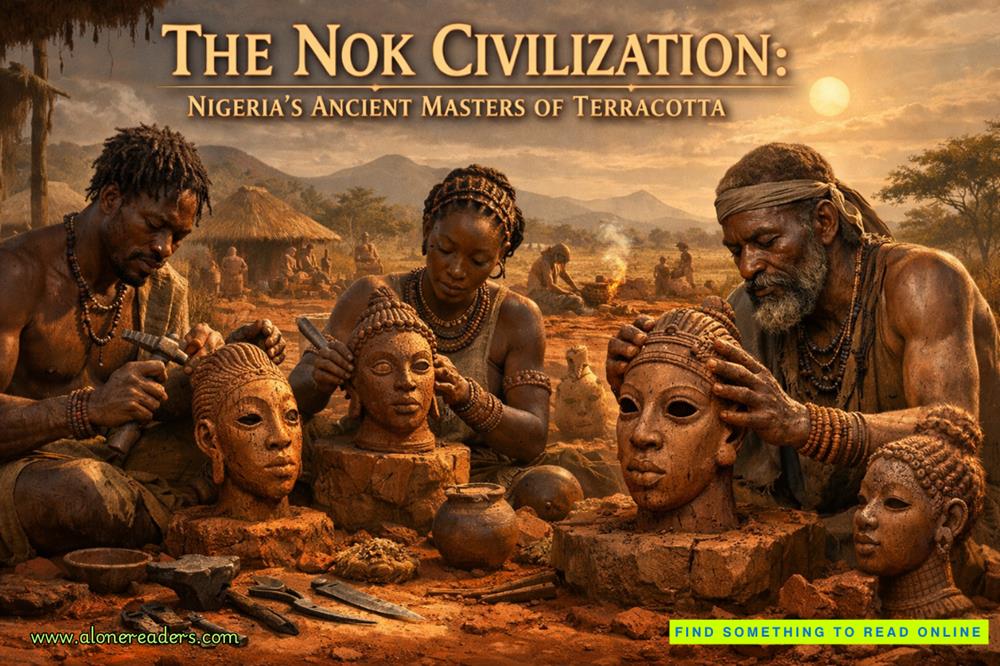As I look around, I hear someone descending some stairs from behind me and turn to see an older, pot-bellied man emerge from a door. He looks around and, catching sight of Reem, holds out his hand, a smile on his face that I read to be fake.
“You’ve found the space, huh?” he says, his voice overly loud as they shake hands. “Make yourselves at home.” He falters suddenly as he catches sight of me. “Who’s this?” he asks as he focuses his attention on me in a way that makes me wish to reach for the weapon I don’t have.
Instead, I carefully keep my face blank and not just of pain this time.
As I wonder what to say, Fem steps forward alongside me and says, “She’s just a friend. I think we have everything we need here. We will fetch you if that changes.”
Then, without saying anything further to the man, he turns to Lent and they begin to discuss details such as where people will sit and where we should set the refreshments. The man is undeterred for a moment by the dismissal, but then Reem begins to move towards the door. As he walks away from me, the man slowly follows, and I hear Reem say something aboutgetting the place paid for. I can’t hear what he says when the man responds.
Shortly thereafter, when Fem moves to bring some things from the carriage, I see that it is just the four of us again. I release a breath I hadn’t realized I was holding and then look around for something I can be useful with.
As though he can read my mind, Reem says, “Could you please set out the refreshments?”
I agree and begin organizing the pastries and small glass bottles of drinks along with piles of cups, plates, and cloth napkins.
The next hour flies by, and suddenly, people begin to arrive in the space. I move to the back of the room, sitting in a place where the shadows and smoke seem to dance between the scones of light. The crowd arranges itself in the main part of the room. Eventually, the boys get things organized, telling those who showed up to audition to take turns singing what they have prepared.
I watch as person after person goes to the platform at the front of the room and sings. They all seem to know the music, but I do not, at least not until today. Some of the music pulls at my emotions. Some of it does not.
There must have been over sixty people who showed up, and as about half remain, I locate a piece of paper and a charcoal pen and begin to sketch something to pass the time.
I’m midway through my sketch, which has slowly taken the shape of a horse, its mane caught in an active wind, when I hear something familiar.
“I hear the knife pierce flesh and bone
And gasp as though it were my own”
The sound of these familiar lyrics in a new voice pulls at me in a way that none of the others yet have. I look up and see a man with broad shoulders who is of average height. He has dark brown hair that is slightly wavy and falls just past his ears, kissing his wide cheekbones. His lips are full, and his face is broad and neatly shaven. His hair is neatly combed and contained somehow, but looks as though it would like to be messy. I would guess him to be a little older than the boys, maybe thirty.
He wears a button-up shirt with a tailored vest over it, his sleeves long and buttoned at his wrists. Even as I watch him, he tugs at a sleeve, as though attempting to further organize something which is already neat. He wears grey pants which are also impeccably tailored and fall to neat, shined shoes. A tattoo crawls up his neck on the right side, just revealing itself above his collar.
“The pain of flesh doesn’t bother me
It’s the pain of heart that’s broken free”
I’m captured by this moment, his voice seeming to add some magic to this music, these words that I know. Even as I’m caught up listening and watching him, his focus seems to be caught fully within the music he sings. He arrives at the end of the song far too soon. Everything is silent for a few moments.
“Bold of you to sing that particular song,” says Reem, but he’s grinning as he says it. He gestures at the singer to sit in one of the chairs they’ve placed off to the side of the room.
There are only two others there, clearly those select few who will proceed. As the remaining ten or so singers complete the process, I go back to finishing my drawing, occasionally glancing up at the small group of those selected, my attention drawn to the neatly dressed man as he waits and watches the others perform.
In the end, only four singers remain. As I wonder what might happen next, the boys stand up and proceed to the platform, where they begin to set up instruments and other band clutter. While I may be naive to this process, the band and the singers seem familiar with it.
As they finish setting up, the boys point to one of the four singers who moves to the platform with them. They begin to play another song, this time accompanying the singer who is auditioning.
That singer does a good job, and now that the full band is playing, I find myself swept up with the music again, my drawing forgotten. They choose another singer at random and go back through the same song. It’s both the same and different, and as I tease apart the small differences, I understand how difficult it would be to choose. That singer finishes and leaves the platform, and they choose another, this one the singer who caught my attention earlier.
I attempt to begin a new drawing so as not to be tempted to stare, but fail as soon as he stands. I watch him as he moves to the stage. His movements are controlled in a way that tells me he knows how to fight. As he stands in front of the band, they start up again, and when he opens his mouth, my drawing is quickly forgotten.
My attention narrows to only the music, truly only the singer. His voice is something entirely different than the others, and even though they didn’t sound bad, they didn’t sound like this. Again, before I’m ready, the music ends, and everything is silent for a few moments before Lent calls out something which must be the name of a different song.
The band launches into another set of words and music, and again, I’m captured and pulled out of this world that we live in.
As this song finishes and the silence fades, the boys step forward, surrounding the singer. Their excitement is infectious, and as they celebrate and embrace him, the remaining threesingers read the room and leave out the side door without comment.
Suddenly unwilling to remain where I am, I move forward towards the stage. Standing closer, I hear him introduce himself as Dio. They’re asking him questions about who he’s sung with, where he’s from, and so on.
One question seems out of place, and that is, “What industry do you work in?” Or perhaps the question doesn’t seem out of place, but the answer does, as I hear him say, “Oh, I don’t work in industry, I adore the trees.”















